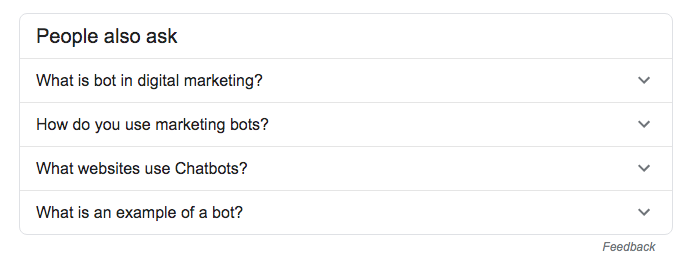Popular opinion says focusing on keywords is critical to ranking on Google. But how effective is that tactic today? Do keywords still carry the same weight?
Starting with the rollout of semantic search, there’s been a continued change in search algorithms to now focus more on topic recognition rather than keyword match, thereby satisfying search intent as much as possible.
However, we would not think keywords are irrelevant when building a solid SEO strategy. Keyword research still has the same level of importance, and it’s the foundation for any SEO campaign, including website on-page, content structuring, content planning, content optimisation, etc.
But with the change in the search algorithm, one should also change their keyword research approach. Let’s look at how to leverage keyword research to the fullest in 2020, and when to let it slide.

What Are Keywords?
As the name implies, keywords refer to the terms for which you rank on the search engine result pages. An example is “digital marketing” or “graphic design.” Keywords can be divided into two groups. Short-tail keywords usually contain one or two words – “digital marketing” – and long-tail keywords typically contain three or more words – “Digital marketing company in Melbourne.”
What to do to make keywords more effective
When talking about SEO, an effective keyword refers to the one for which you can show up on the first page, and that can bring a sufficient amount of traffic to your website.
So before embarking on keyword research, it’s essential to set the yardstick with which you will evaluate how effective your keywords are. Thus, you need to ensure your keywords can bring you targeted traffic and that you have a system that can convert the traffic later on.
Some of the following criteria can help you determine if you’ve got the right keywords.
Keyword’s relevance
If your keyword is closely related to your offer, then it is relevant. Note that relevant keywords are not just ones that describe your services or products. They are ones that describe the main problem that people in your niche are facing.
Keyword’s estimated monthly search volume
If you are looking to bring lots of traffic to your website, you want to be sure your keyword can help you achieve it. However, the amount of traffic required will depend on the industry. For instance, if you are in a broad niche, like tourism services, you may be looking at keywords with 10k-100k monthly searches, while for specific niches like skydiving gear; search volume might be significantly lower.
To estimate the amount of traffic you need, you need to first measure the competition. Evaluating the amount of traffic that your niche can generate, you’ll know which keywords to keep and the ones to discard.
Keyword’s competition
Understanding keyword competition shows you how easy or difficult it is to rank for a keyword. Most SEO software usually presents you with two important metrics – keyword difficulty and keyword competition.
Keyword difficulty, particularly offers lots of information, as it does reveal not only the level of competition for the search phrase but also the strength of those competing pages (including their backlink profiles, and so on). One can measure how easy or difficult it is to rank for a keyword without the use of third-party tools. Type this keyword in the Google search box and check out the websites occupying the first three positions. If they are all authority websites, like Amazon or Wikipedia, you will likely have a hard time ranking for that keyword.
Are you in search of a reliable keyword research tool?
Keyword Tool is a specialised, free online research program that makes use of Google’s ‘autocomplete’ feature to suggest lots of related and relevant keywords for any niche. The keywords are suggested based on your preference and a Google domain.
When not to use keywords
No one is asking you to steer clear of using keywords, but they should not become the only hope for your blog or page. There are various reasons people search for stuff online, and Google uses search intent to understand the purpose of every search. Satisfying the search intent of users is the key to ranking today. So when considering a keyword, you have to ask yourself what the search intent is and whether you can fulfill it.
Examples of these types of search intent include navigational (usually branded search terms; informational (how to…, what is…, etc.); transactional (download, subscribe, buy,); commercial investigation (like ‘brown leather men’s wallets’ or ‘best toasters’). There’s no better way to understand search intent than to study Google’s top results and look at the type of content ranked for that keyword.
Let’s examine this blog post as another example:
Keywords: Google, keywords, SEO,
Topic: Why you should focus on topics rather than just keywords to help you rank in Google
There are lots of similarities between the two, but with keywords comes more limitations. On the other hand, the topic tells us why someone would be interested in reading this post – they are interested in learning more about ranking in Google, and how to adapt their campaign.
There are some reasons why keywords aren’t as relevant as what they used to be, but here’s the biggest one…
-
User Experience is greater than Technical Rank
From the beginning, the goal of Google has always been to provide the most organised and accurate results to searchers. Back in the day, Google relied heavily on keywords to understand a page’s content and purpose. That gave rise to lots of spun content with the same keywords stuffed in them.
Google then moved to curb this problem (known as keyword stuffing) by focusing more on content that’s written for the user, not keywords. That means content needs to be accurate, straight to the point, useful, and relevant to the searcher. We also need to concentrate on the right topics.
How do you choose the right topics?
If you’re looking for a way to easily and quickly find the kinds of topics that people are looking for, then Google can help you do the hard work.
Google currently has a list of commonly searched questions as well as searches carried out by people about any topic. This data is worth its weight in gold, and it beats my imagination why Google reveals it. It almost renders keyword research useless because it provides semantic keyword ideas.
Semantic keywords refer to ones that put your content in context, making it possible to rank for multiple keywords with one post.
Now open up the Google search box; search for any topic you’re planning to write about.
For instance, recently, we planned to write about the impact of Facebook Bot Sequences on digital marketing. So we turned to Google to get some keyword data and compile other industry perspectives. Scrolling to the bottom when you’re on the search results page allows you to get contextual keyword ideas and data instantly.

Now we have a suggestion of searches related to our original search.
This’s how you incorporate context into an existing post. It is also how Google knows that you’re offering value. In our next step, we usually just let these form a basic outline for a new post.
For instance, it could be structured this way:
- Header: Text containing Original keyword “Facebook Bot Sequence Marketing.”
- Intro: The impact of bot sequences on digital marketing
- Body 1: Application of Bot Sequencing in digital marketing
- Body 2: Bot Sequences and content marketing
- Body 3: Facebook trends
Keywords won’t suddenly become irrelevant, but we all need to stop trying to satisfy bots and start writing to help real humans. Topics allow you to create and structure content that connects with you your target audience.
Google provides you with free data – just use it!
Notice how those queries are closely related and how we used them to build our content?
Now we’ve got a chance of showing up for multiple key phrases, and we’re providing value to the end-user too. Look at those related keywords as what someone would search for after searching for your main term. That means they also have an interest in those, so you need to cover them in your content to keep them engaged.
Google presents you with free data. Make sure you use it.
Also, it saves you time because you don’t have to waste hours trying to use keyword tools. You can use this same blueprint for any keyword, and you will get suggestions that will help you create long, engaging content that makes visitors return.
When the chips are down, and you still want to maintain keyword relevance in your content, you can make use of on-site search data. It provides a faster way for your readers to find content and has no cons. If your blog is on WordPress, you can add it easily with the aid of a plugin. With on-site data, you can get real-time data that shows you why people are coming to your site. If you need help with this, let us know, and we’ll gladly help.
What sort of content do they require from you? Do you know?
If you answered no, you could be passing on a massive opportunity to satisfy current customers’ needs and bring loads of traffic to your website, too. Once you are in your Google Analytics, you can access data from your on-site search. Go to the behaviour report tab under site search, and you’ll see the search terms report. Here you can see the most searched keywords that visitors search for on your site. If you begin to notice topics that you are yet to cover, it’s time to get to work and create content on it.
If it’s a topic you have previously covered, you can still update it. There are loads of options here, and this data is beneficial. You can use this feature to expand on your existing content or get valuable keywords for new content ideas.
Conclusion
Keyword research continues to be a critical part of any SEO strategy. In fact, it is the building block, and lots of other activities are dependent on it (Whether it is on-page SEO or content creation and promotion for link building, and lots more).
We also suggest you pick keywords that best suits what your clients are looking for instead of picking the keywords with the most search volume’. The only downside to this is that you may pick the wrong words which can push people in the wrong direction. For example if you’re a hairdresser and your based in Brighton, Melbourne, your keyword should be “Brighton Hairdresser” and “Hairdresser Brighton”, not some large volume keyword that relates to the Melbourne or something else.
But if you service a whole capital city then you can certainly target keywords such as Melbourne Marketing Consultant, Digital Marketing Agency Melbourne, SEO Company Melbourne and so forth. If you get stuck with this then please let me know what keywords you want to rank for and we’ll let you know if we can improve on it.
What you need to bear in mind is that you can’t separate keyword research from the SEO goals you want to reach and approach this step the right way. Plus you have to remember that writing good content and clear topics is a perfect way to get visitors landing on your site and customers through the door.
* * *
Rank on Google with Digital Marketing
Bright Owl Marketing’s digital marketing agency provides fully-integrated solutions for search engine optimization (SEO), pay per click advertising, social media marketing, content marketing, and even email marketing. Our marketing strategies are customised entirely to meet your specific needs. We work with you to build a tailored marketing strategy and work with you to help implement it over the next 12 months.
Check Out Our Digital Marketing Services
Do you require a marketing plan by one of our qualified marketing consultant? We are a Melbourne and Sydney based SEO, digital marketing, social media marketing, web design marketing agency. We’re located just outside of Melbourne CBD, but we love coming to you and checking out your business. And we’re just as happy collaborating at a local café, with great coffee of course. Contact us today for more information.









